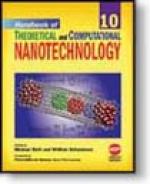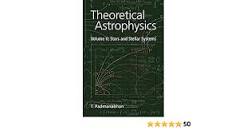Descrição
The future applications of nanotechnology in high-tech industries require deep understanding of the theoretical and computational aspects of all kinds of materials and devices at a nanometer scale. Handbook of Theoretical and Computational Nanotechnology is the first single reference source ever published in field that offers such an unified approach covering all of the major topics dealing with theory, modeling, design and simulations of nanostructured materials and nanodevices, quantum computing, computational chemistry, physics and biology, nanomechanics, nanomachines, nanoelectronics, nanoprocesses, nanomagnetism, nano-optics, nanomedicines, nanobiotechnology, etc. This 10-volume (ca. 8,000 pages) handbook provides the first ideal introduction and an up-to-date survey of the fascinating new developments and interdisciplinary activities in the whole field presented by scientists working in different subject areas of science, engineering and medicine. This handbook is the most profound publication on this topic- the first treatment of the computational nanotechnology. This outstanding handbook presented by 265 worlds leading scientists, is the most significant academic title ever published in this research field. This handbook has been divided into 10 thematic volumes by documenting computational treatment of nanomaterials and nanodevices.
CONTENTS:
Atomic Design, Atomistic Modeling, Quantum Computers, ab Initio Methods, Atom Nano-optics, Computational Nanoelectronics, Computational Nanotechnology, Molecular Devices, Molecular Machines, Nanosurfaces, Bio-Molecular Motors, Molecular Motors, Molecular Dynamics, Meshfree Methods, Density Matrix Renormalization Method, Finite Element Method, Maxwell Solvers, Bionanotechnology, Embedded Atom Method, Tight-Binding Molecular Dynamics Method, Computational Modeling, Statistical Mechanical Modeling, Linear-Scaling Quantum Mechanical Methods, Equivalent-Continuum Modeling of Nanomaterials, Self-consistent P3M Simulation of Ion Channels, Multiscale Simulations of Nanomaterials and Nanodevices, Hierarchical Models of Nanomechanics and Micromechanics, Computational Nanomechanics of Materials, Nanotribology, Adhesion, Nanoindentation, Nanoscale Fracture Processes, Transport Phenomena, Proton and Electron Tranfer Processes, Flow Modeling in Fullerenes and Nanotubes, Atomistic Modeling of Nanoprous Materials, Nano-thermodyanamics, Quantum Chemistry, Computational Biology, Protein Folding, Computational Studies of DNA and RNA, Enzymes, Enzyme-Mimetics, Enzyme-Catalyzed Reactions, Nanomagnetics, Medical Nanorobotics, Biological Nanotubes, Design of proteins, Nanomedicines, Drug Design and Delivery, Ligand Docking, Computational Models for Genetics and Neurogenetics, Neuro-Genetic Information Processing, Nonlinear Optical Properties of Carbon Nanostructures, Optical Properties of Nanoclusters and Semiconductor Nanostructures, Modeling of Photonic Crystals and Nanostructures, Quantum Optics, Theoertical Physics, Computational Micromagnetics, Magnetic Nanomaterials and Nanodevices, Self-Assemblies, Modeling of Polymer Nanocomposites, Carbon Nanotube Composites, Diamonds, Fullerenes and Endofullerenes, Carbon Nanocones, Doped Nanomaterials, Superconducting Nanostructures, Embedded Quantum Dots and Nanowires, Molecular Wires, Nanocrystals, Computer Simulation of Surfaces, Conjugated Organic Polymers, Monte Carlo Simulations, Nano-thermodynamics of Surfaces, Mechanical Properties of Polymer-Carbon Nanotube Composites, Single and Multi-Wall Carbon Nanotubes, Ferroelectric Nanostructures, Silicon-Based Nanodevices, Single-Electron Devices and Nanocircuits, Single-Electron Transistors, Quantum Dot Lasers, Modeling of Nanodevices, Modeling of MEMS and NEMS, Biomechanism, Nanomedicines, Computational Chemistry, Quantum chemistry, Molecular Design, Nanomedicines and Nanodrugs design, Computational methods and Simulation Techniques from ab initio to Multiscale, Algorithms, Nanoscale Analysis of Defects, diffusion, Cascades, and Irradiation, Nanomembranes, Nanocatalysis, Nanometals, Polymer Nanostructures, Liquid Crystals, Nanocolloids, Monolayer and Multilayers, Tthin Films, Nanoengineering and Nanodesign Nano-CAD, Luminescence, Computational Methods for Simulating Quantum Computers, Wigner Function Based Device Modeling, etc.




